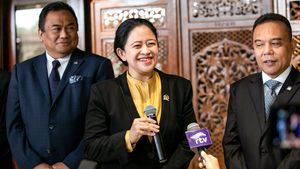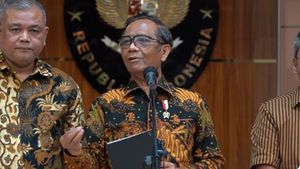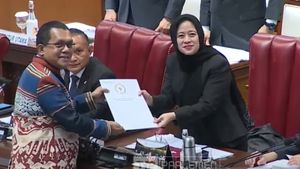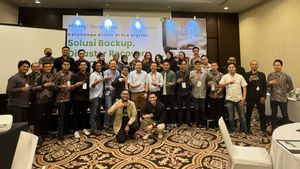JAKARTA - The Ministry of Health (Kemenkes) said that BPJS Kesehatan will continue to bear the costs of treating patients with obesity even though the person concerned does not have comorbidities or comorbidities.
"Regarding referrals for patients, the referrals (without fees) are included in the National Health Insurance (JKN) scheme," said Head of the Mellitus Diabetes Working Team and Metabolic Disorders of the Ministry of Health Esti Widiastuti as reported by ANTARA, Tuesday, July 11.
Esti said the effort was made because the government saw that obesity without comorbidities such as hypertension, diabetes mellitus or auto immunity was also included in a disease that required treatment.
Ibesitas has had a bad impact in a long time because it involves the welfare of the community to be able to live productively. For example, such as increasing the potential for non-communicable diseases (PTM) to economic losses triggered by the cost of treating comorbidities or PTM.
Moreover, based on the 2018 Basic Health Research (Riskesdas) data, which shows that the prevalence rate for obesity in Indonesia has touched 21.8 percent.
The prevalence of obesity is increasing, both in adults and adolescents who have the potential to increase the number of non-communicable diseases. Unhealthy lifestyles such as excessive consumption of salt sugar and fat (GGL), lack of fibered food and lack of physical activity are triggers for obesity," he said.
Plt said the same thing. Director of Nutrition and Health of Mother and Children of the Ministry of Health Lovely Daisy.
According to him, obesity will still be handled considering that every disease based on a disease classification system run throughout the world according to the direction of the World Health Organization (WHO), each has an international clarification of diseases (ICD) or their respective codes.
"For example, if there is an ICD 10, it must be a disease. So there is no need for comorbidities, if that's the case, the name will become a disease and will automatically be covered," said Daisy.
Daisy also advised that the main key to avoid obesity is greatly influenced by the desire of each party to change their behavioral patterns to live a healthy life through balanced nutritious diet arrangements as described in the Piring Isi slogan.
اقرأ أيضا:
As stated in Permenkes No. 30 of 2013 concerning Inclusion of Information on Sugar, Salt and Fat Content and Health Messages on Food and Ready-to-Seize Food, the recommended sugar consumption is four tablespoons/people/day.
Then for salt intake is one teaspoon/person/day. Meanwhile, the recommendation for fat intake is five tablespoons/people/day.
In order to avoid obesity, Daisy also recommends that people start to regulate their activities to regularly exercise physically and reduce the habit of playing gadgets for a long time. It is also important to regulate sleep patterns to avoid stress.
"Actually, the behavior of habits (preventing obesity) must start from home to be carried away by the child. Parents' habits in preparing meals for breakfast, for example, are also important so that children do not eat (unhealthy food), it will usually be carried away," he said.
The English, Chinese, Japanese, Arabic, and French versions are automatically generated by the AI. So there may still be inaccuracies in translating, please always see Indonesian as our main language. (system supported by DigitalSiber.id)













